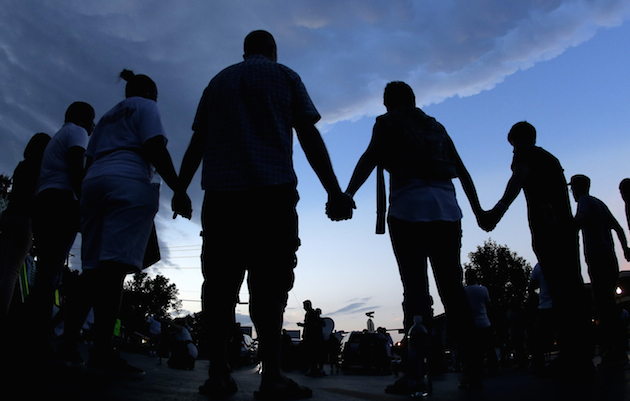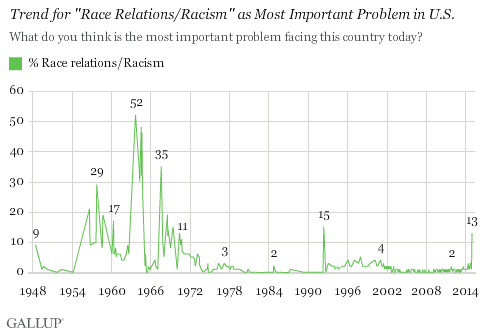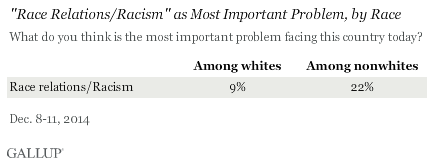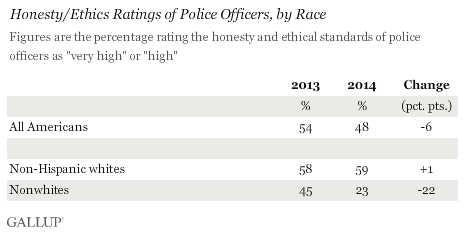
Charlie Riedel/AP

A new poll conducted by Gallup found that 13 percent of Americans believe racism is the country’s most important problem, up from just 1 percent in November. It’s the highest that number has been since the Rodney King verdict in 1992.
The sharp rise follows national outrage and a wave of protests that swept the nation in response to the failure by two separate grand juries to indict two white officers who killed two black men, Eric Garner and Michael Brown.
According to the data published Friday, nonwhites are more than twice as likely as whites to call race relations/racism the country’s most important problem:

The latest poll echoes recent studies revealing similar sentiments, including worsening race relations and a growing distrust of law enforcement officers among Americans. As for the latter, however, Gallup found in a poll published earlier this week that while trust in police by nonwhites has plummeted by 22 percent, whites’ views on the issue have barely changed.

As for the most important problem facing the nation, that’s still the government, which leads racism by 2 points.
Correction: The original version of this story misstated the last time so many Americans viewed racism as the nation’s biggest problem; it was after the Rodney King verdict, not his death.














